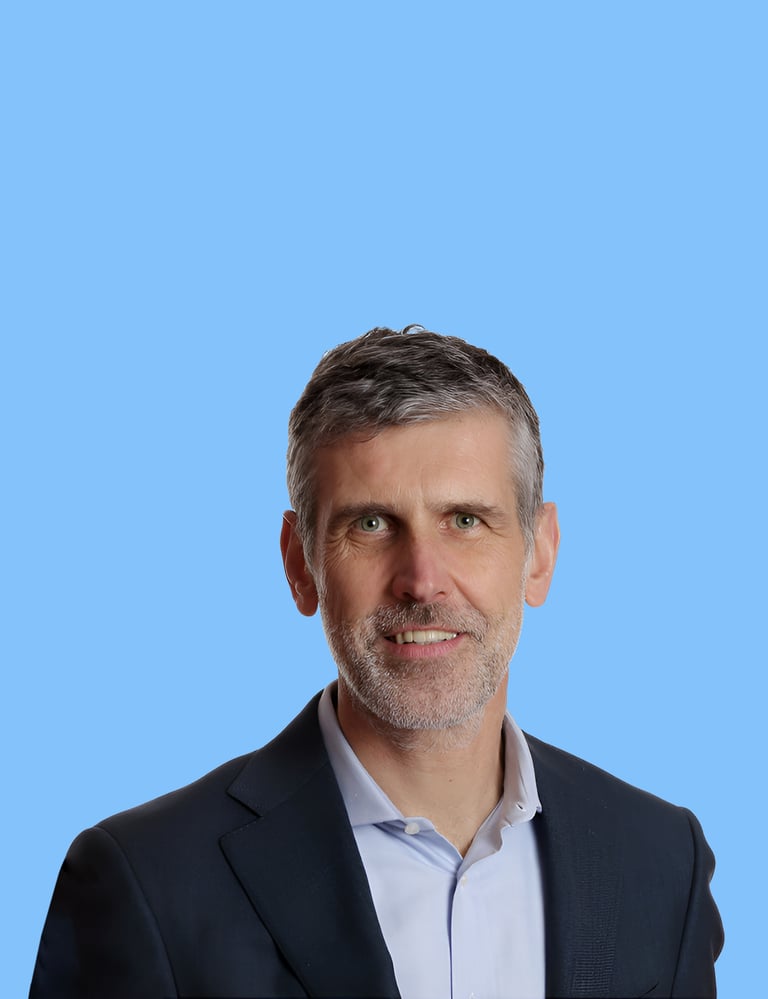Jerome Pedretti on why sustainability
is the future of pools
–––––
SWIMMING POOL INDUSTRY VOICE


Jerome Pedretti is Executive Vice President and CEO of Pentair Pool, where he’s driving a bold vision for sustainable innovation across the industry. With a background in engineering, business development and global leadership, he brings deep expertise and a passion for creating pools that support people, communities and the planet.
Jerome, the Pool Horizons Keep Swimming report presents a comprehensive view of sustainability. What does that mean to you?
For me, sustainability isn’t just environmental - it’s social and financial, too. The three go hand-in-hand. If a pool is more energy-, chemical- and water-efficient, it helps save resources and money. That’s not only good for the planet, it also helps ensure that pools - whether in family gardens or backyards or in community centers - can stay open, affordable and accessible. We want pools to be a place where memories are made and are a vibrant part of people’s lives for generations to come. That means making them sustainable in every sense of the word.
Where do you see the biggest opportunities for impact right now?
There’s a lot we can do. On the environmental side, we’re making real strides in areas like water conservation, energy efficiency and responsible chemical usage. But the financial and social impact is just as important. When we reduce costs for operators and pool owners, we’re helping to keep public facilities viable and backyard pools within reach. Look at Exmouth in the UK. By using heat from a data centre that would otherwise be wasted, the local leisure centre has reduced its energy costs and keeps the pool warm and open for residents. Another example of how we are working to make backyard pools more sustainable is that 319,322 metric tons of CO2e emissions were avoided by U.S. consumers through Pentair Pool’s energy-efficient pool pumps and heaters in 2024.* These are the kinds of solutions we need - smart, scalable and rooted in local needs.
*Based on the total 2024 sales of ETi® High-Efficiency Pool and Spa Heaters and ENERGY STAR-rated pool pumps made by Pentair. Emissions equivalency is estimated using the Environmental Protection Agency (EPA) GHG Equivalencies Calculator as available in November 2024.
How can the swimming pool industry make this shift at scale?
We need both innovation and mindset change. Technologically, we already have tools: smart pumps, solar heating, water recycling systems, AI-driven water monitoring. But equally important is understanding pools as infrastructure - spaces that support health, inclusion and economic opportunity. That means engaging with, for example, policymakers, urban planners, community groups and pool builders. Community pools can reduce social isolation, provide local jobs and support public health; backyard pools provide families with a place to come together to relax, reflect on the day and build memories that will last a lifetime. But as an industry, we must continue to work to ensure that we are making pools more efficient, more inclusive and more resilient, to allow these benefits to be realized.
What role do homeowners play in this broader picture?
A huge one. The family pool is often where people first learn to swim, it’s where a family connects and relaxes after a long day, it is where meaningful memories are made. Homeowners can lead by example - choosing smart energy systems, fixing leaks, using covers, reducing chemical use. Every action adds up. And when consumers demand sustainability, it drives the whole industry forward. That’s why I see sustainability as a shared mission. It’s not just about regulations or big investments. It’s about collective responsibility. It’s about creating a world where pools are loved - not lost - because they’re efficient, equitable and enriching.
If you could share one message with the global pool community, what would it be?
Don’t wait for perfect. Start with practical. The path to sustainable pools is made of everyday decisions - with extraordinary impact. When we build and operate pools that conserve resources, support wellbeing and make financial sense, we create spaces that families and communities can depend on.
Jerome Pedretti

